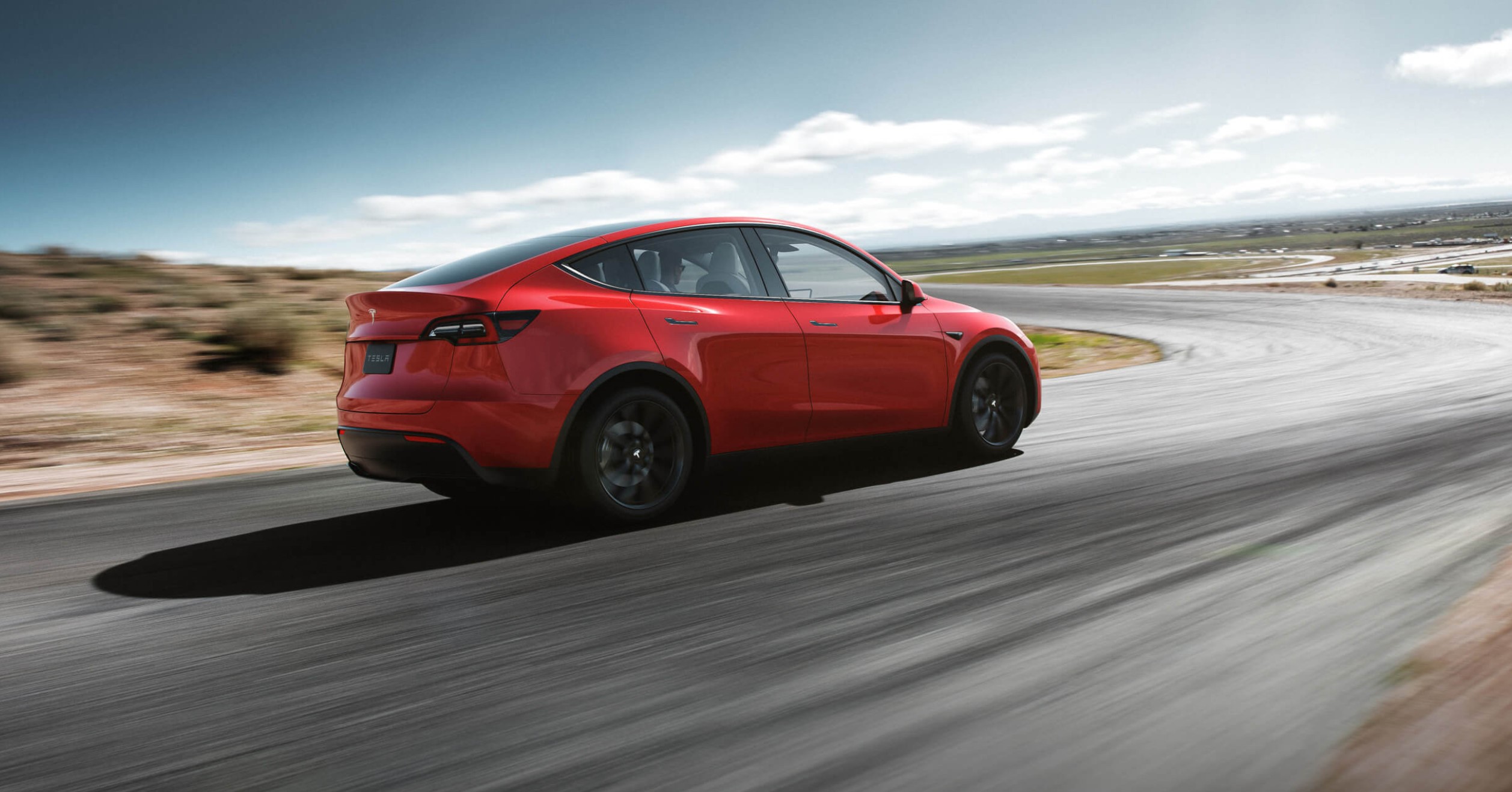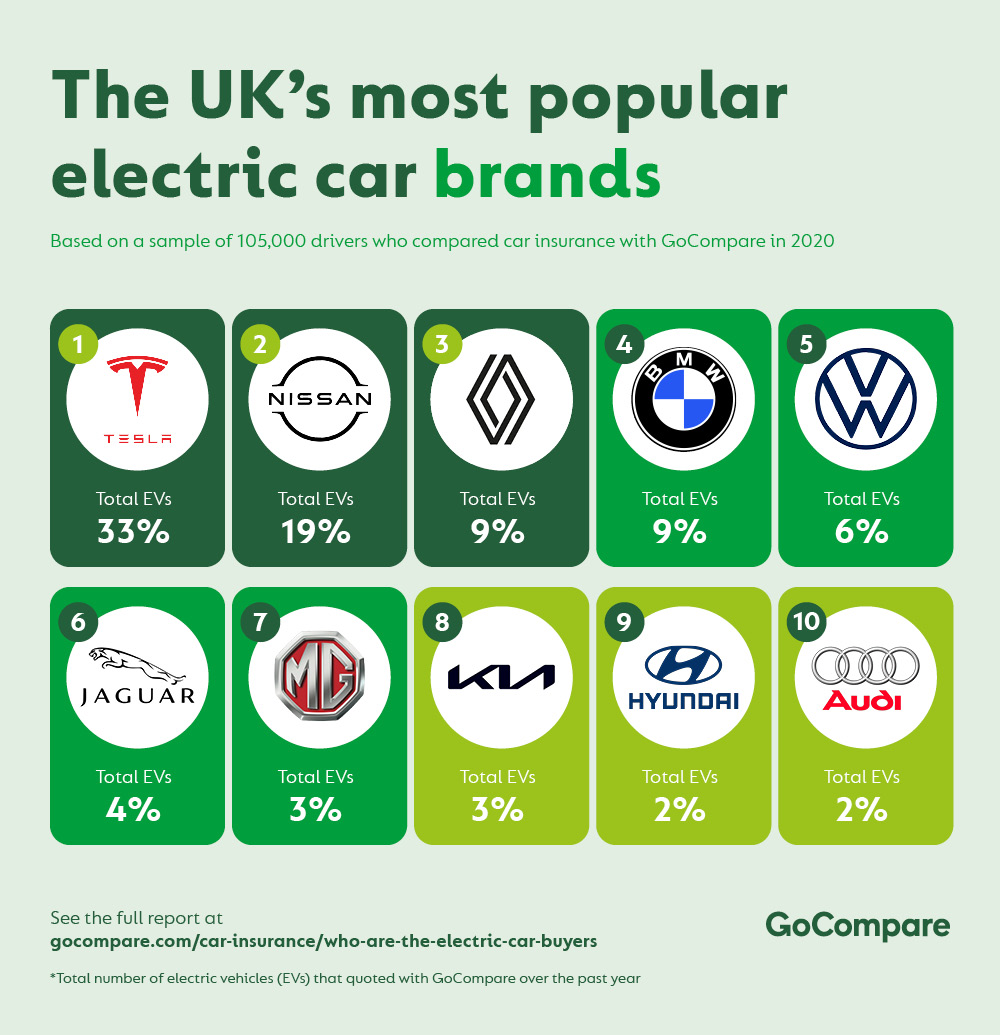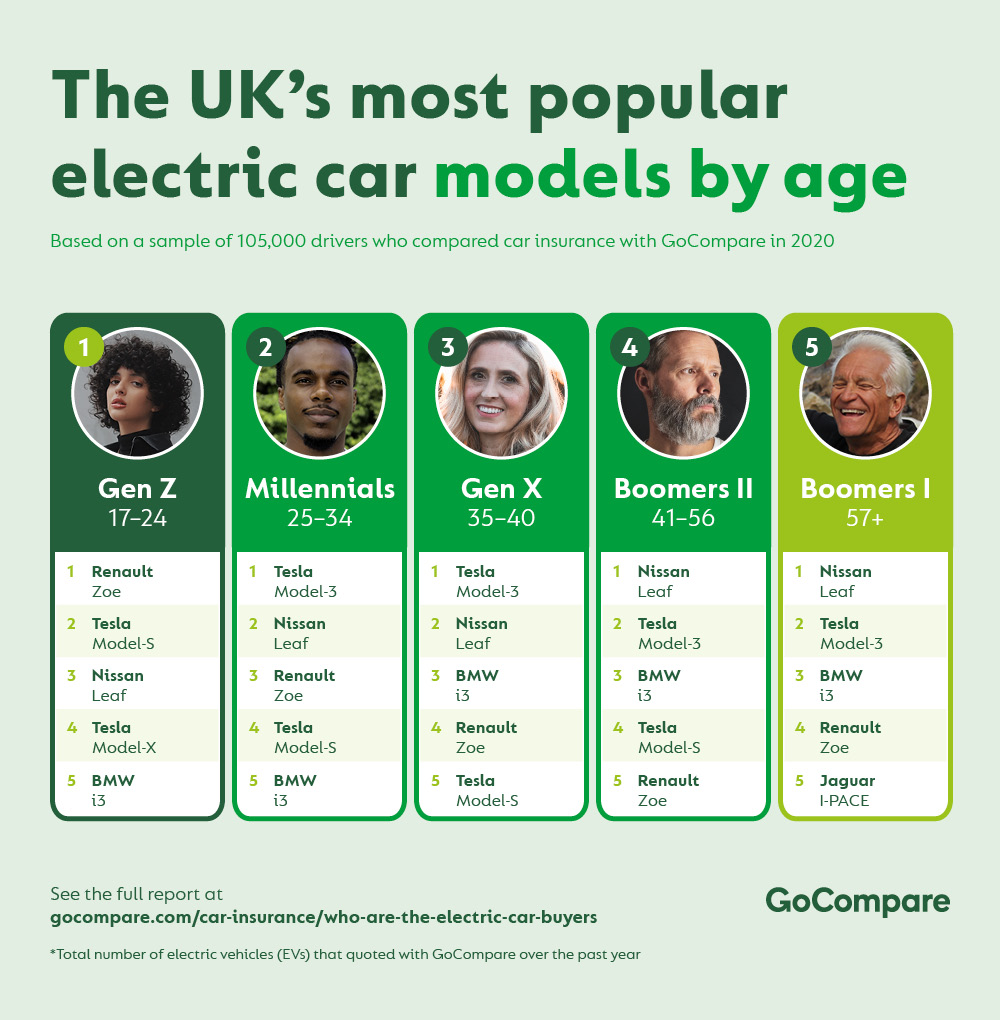What is the UK’s most popular electric car? Here’s what the data says
Electric cars are becoming more popular than ever, but what are people buying?

Here at Tom’s Guide our expert editors are committed to bringing you the best news, reviews and guides to help you stay informed and ahead of the curve!
You are now subscribed
Your newsletter sign-up was successful
Want to add more newsletters?

Daily (Mon-Sun)
Tom's Guide Daily
Sign up to get the latest updates on all of your favorite content! From cutting-edge tech news and the hottest streaming buzz to unbeatable deals on the best products and in-depth reviews, we’ve got you covered.

Weekly on Thursday
Tom's AI Guide
Be AI savvy with your weekly newsletter summing up all the biggest AI news you need to know. Plus, analysis from our AI editor and tips on how to use the latest AI tools!

Weekly on Friday
Tom's iGuide
Unlock the vast world of Apple news straight to your inbox. With coverage on everything from exciting product launches to essential software updates, this is your go-to source for the latest updates on all the best Apple content.

Weekly on Monday
Tom's Streaming Guide
Our weekly newsletter is expertly crafted to immerse you in the world of streaming. Stay updated on the latest releases and our top recommendations across your favorite streaming platforms.
Join the club
Get full access to premium articles, exclusive features and a growing list of member rewards.
With the U.K. racing to meet climate targets, it’s caused a surge EV (electric vehicle) interest and sales.. Sales of EVs rose by 185% last year, despite the number of new car registrations falling to their lowest level in 30 years. Which is a good thing, since you won’t be able to buy a brand new petrol or diesel car in ten year’s time.
But have you ever wondered which people are buying electric cars? Or which electric cars they tend to be going for? Our friends over at GoCompare have spoken to 105,000 EV owners, crunched some numbers, and figured out exactly what’s going on with the electric cars currently on Britain’s roads.
- These are the best electric cars out right now
- Here are the best OBD2 scanners on the market
- Plus: What is the UK’s most popular electric car? Here’s what the data says
What are the most popular electric cars?
It should be absolutely no surprise that Tesla is currently dominating the UK’s EV market. GoCompare’s research found that a whopping 33% of EVs on the road are made by Tesla, and 22% of them are the entry-level Tesla Model 3. The Model X is the third most popular EV in the U.K., accounting for 10.9% and the Model S is in fifth place with 8%.
Nissan is the second most popular EV brand in the U.K., accounting for 19% of electric cars in the U.K. Unsurprisingly the most popular model is the Nissan Leaf, which accounts for 18.7% of U.K. EVs.

This shouldn’t be a huge surprise, given how Nissan has been selling the Leaf in the U.K. since 2011. At the moment, the Leaf is the only electric Nissan car on sale in the U.K. (the other two are vans), it makes sense that people gravitate towards it. The Nissan Ariya is also set to go on sale later this year.
Renault, another long-time EV maker, accounts for 9% of EVs on the road. The Zoe is its most popular car, making up 7.9% of the U.K.’s EV fleet. BMW also has 9% of the EV market share, with the i3 dominating the bulk of those sales and accounting for 8.7% of EVs in the U.K.
Where are all the electric cars?
It shouldn’t be a surprise that most EVs tend to be within range of big cities. That’s where the people are, and where all the charging infrastructure tends to be. What is a surprise is that GoCompare’s research found that London was not one of the top 20 EV hotspots.
Get instant access to breaking news, the hottest reviews, great deals and helpful tips.
Given the amount of people and car chargers in and around London, you’d have thought it was EV central. But sadly not. If we were to guess it would be down to how congested London roads are, and how good the public transport is. Plus it’s expensive, and the prospect of buying and insuring a car, then paying a fortune for parking isn’t appealing.
But of the 105,000 drivers GoCompare surveyed, Glasgow came out at the top of the list. A surprising 704 EV drivers live in Glasgow. That’s followed by Birmingham (628), Manchester (591), Milton Keynes (591), and Sheffield (568).
Who’s buying electric cars?
Electric cars do not come cheap, especially compared to petrol counterparts. The used EV market is also nowhere near as large as the internal combustion engine. In part because of how relatively new electric cars are, and how their batteries can degrade over several years.
So it’s no shock that higher earners are the ones that seem to be doing the buying. Evidently 10.5% of EVs on the roads are owned by retirees, while 8% are from self-proclaimed Company Directors. They are followed by Housewives (2.3%), Software engineers(1.9%) and Managing Directors (1.7%).

Age can also affect what car an EV driver will actually buy. The Nissan Leaf appears to be most popular with the two Boomer age groups (41-56 and 57+), closely followed by the Tesla Model 3. Meanwhile the reverse is true for Millenials (25-34) and Gen X (35-40). They prefer the Model 3, while the Leaf is the second most-popular option.
Gen Z (17-24) has turned that on its head, with the most popular car being the Renault Zoe, likely helped by its more affordable price. Meanwhile the second most popular car is the premium-priced Tesla Model S. The Nissan Leaf is third, while the Tesla Model 3 doesn’t appear at all.
The Tesla Model 3 is also the most popular car when you split respondents up by gender. That’s followed by the BMW i3 and the mid-range Nissan Leaf Tekna. But that’s where things change, and the fourth most-popular car among Men is the entry-level Nissan Leaf Acenta, while women are more likely to opt for the Renault Zoe.

Tom is the Tom's Guide's UK Phones Editor, tackling the latest smartphone news and vocally expressing his opinions about upcoming features or changes. It's long way from his days as editor of Gizmodo UK, when pretty much everything was on the table. He’s usually found trying to squeeze another giant Lego set onto the shelf, draining very large cups of coffee, or complaining about how terrible his Smart TV is.
 Club Benefits
Club Benefits










